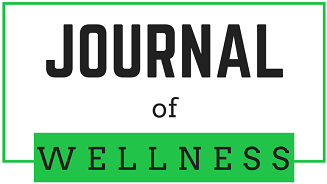
Abstract
Introduction: Burnout in emergency medicine and in residency training has been well-described. The impact of demographic, individual, and programmatic factors on burnout have not previously been determined in a national survey of emergency medicine residents. This study aimed to identify personal and environmental factors impacting resident burnout in a national sample of emergency medicine residents.
Methods: A prospective Emergency Medicine Resident Wellness Survey was administered in 2017. We surveyed respondents on demographic, personal, and environmental factors; each respondent also completed the Maslach Burnout Inventory - Human Services Survey. Linear regressions were used to identify variables associated with the Maslach Burnout Inventory’s subscales of burnout (depersonalization, emotional exhaustion, and personal achievement).
Results: The survey was completed by 1,522 of 7,186 (21.2%) eligible EM residents. Respondents represented 193 of 247 (78.1%) Emergency Medicine residency programs. Increased levels of depersonalization were associated with graduation from a US medical school, female gender, and increase in respondent age. Trainees who were parents and who graduated from an osteopathic (vs. allopathic) medical school were found to have decreased levels of depersonalization. Emotional exhaustion was decreased in respondents who took breaks while on shift and who engaged in regular studying.
Conclusion: While some individual characteristics impact burnout, environmental factors also play a significant role, and should be a target of system-level interventions to improve trainee well-being.
DOI
10.18297/jwellness/vol3/iss2/2
Recommended Citation
Battaglioli, Nicole; Moran, Tim P.; and Li-Sauerwine, Simiao
(2021)
"Demographics, Activities, and Environmental Factors Impact Burnout in a National Survey of Emergency Medicine Residents,"
Journal of Wellness: Vol. 3
:
Iss.
2
, Article 2.
DOI: https://doi.org/10.18297/jwellness/vol3/iss2/2
Available at:
https://ir.library.louisville.edu/jwellness/vol3/iss2/2
Included in
Bioethics and Medical Ethics Commons, Business Administration, Management, and Operations Commons, Creative Writing Commons, Dietetics and Clinical Nutrition Commons, Educational Assessment, Evaluation, and Research Commons, Health and Physical Education Commons, Health Law and Policy Commons, History Commons, Kinesiology Commons, Medical Humanities Commons, Nursing Commons, Nutritional and Metabolic Diseases Commons, Philosophy Commons, Physiology Commons, Psychiatric and Mental Health Commons, Public Health Commons, Substance Abuse and Addiction Commons
